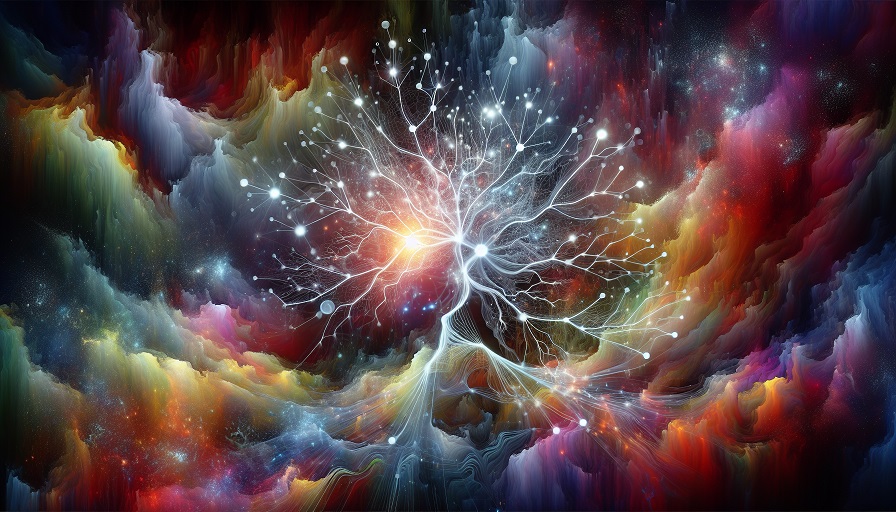
To boost brain energy without caffeine, support your mitochondria with nutrient-rich foods, engage in regular exercise and deep sleep, manage stress effectively, and use nootropics that naturally enhance mental energy and neurotransmitter activity.
Caffeine may be the world’s most popular cognitive booster, but it’s not always the most sustainable. Many people experience jitters, crashes, or tolerance buildup that reduces caffeine’s benefits over time. Others are sensitive to its stimulant effects and seek alternatives for mental energy that won’t interfere with sleep or mood.
Fortunately, there are natural ways to increase brain energy and alertness-no caffeine required. By supporting the underlying mechanisms of cellular energy production and neurotransmitter function, you can feel sharper, more focused, and mentally resilient throughout the day.
Contents
Understanding Brain Energy
The brain relies on a steady supply of glucose and oxygen to fuel billions of neurons that communicate via electrical and chemical signals. Most of this energy is produced by mitochondria-tiny organelles that generate ATP (adenosine triphosphate), the energy currency of the cell.
When mitochondrial function is impaired or neurotransmitter activity is disrupted, mental fatigue, brain fog, and sluggish thinking often follow. Unlike caffeine, which stimulates the central nervous system directly, a more sustainable approach focuses on improving the brain’s own energy metabolism.
Natural Ways to Increase Brain Energy
1. Eat for Mitochondrial Health
A nutrient-dense diet is the foundation of brain energy. Prioritize foods rich in:
- Omega-3 fatty acids (from fish, flax, walnuts) – support brain membrane fluidity and reduce inflammation
- Complex carbohydrates (from oats, quinoa, sweet potatoes) – provide steady glucose release for cognitive tasks
- Magnesium and B-vitamins – critical cofactors in ATP production
- Polyphenols and antioxidants (from berries, dark chocolate, green tea) – protect mitochondria from oxidative stress
Avoiding refined sugar and processed carbs is equally important. Sugar crashes cause mental dips that leave you more drained than energized.
2. Move Your Body
Exercise increases oxygen supply to the brain, stimulates mitochondrial biogenesis (the creation of new mitochondria), and boosts mood via endorphin release. Aerobic workouts like brisk walking, cycling, or swimming are particularly effective. Even short movement breaks throughout the day can help maintain alertness and circulation.
3. Optimize Sleep Quality
Sleep deprivation impairs glucose metabolism in the brain and depletes neurotransmitter reserves. During deep sleep, the glymphatic system clears waste from brain cells and resets mental energy. Prioritize 7–9 hours of sleep per night, and keep screens off for at least 60 minutes before bed to help regulate your circadian rhythm.
4. Manage Mental Load
Stress and multitasking are energy thieves. Chronic stress activates the HPA axis and floods the brain with cortisol, which disrupts focus and memory. Use mindfulness, breathwork, and task prioritization to reduce cognitive overload. Mental clarity improves when the brain isn’t under constant pressure to juggle multiple tasks or emotional stimuli.
Nootropics That Boost Brain Energy Without Stimulants
If you want to enhance brain energy without turning to caffeine, certain nootropic compounds offer stimulant-free support by optimizing mitochondrial function, neurotransmitter production, and cerebral blood flow. Mind Lab Pro contains several of the most effective options:
- Citicoline (Cognizin®): A choline donor that increases the synthesis of acetylcholine, a key neurotransmitter for focus and motivation. It also supports ATP production and neural membrane repair, giving it both fast-acting and long-term benefits for brain energy.
- N-Acetyl L-Tyrosine: A bioavailable form of the amino acid tyrosine, which helps replenish dopamine and norepinephrine during times of stress, fatigue, or sleep deprivation. It supports cognitive function under pressure without overstimulation.
- Rhodiola Rosea: An adaptogen that helps your body cope with stress and reduces mental fatigue. Studies show it can improve mental performance and alertness under challenging conditions, such as exams or long workdays.
- Bacopa Monnieri: Known for improving memory and reducing anxiety, Bacopa also reduces the perception of fatigue, making it easier to stay mentally active over time.
These compounds work together to support the brain’s natural energy pathways. Unlike caffeine, which forces stimulation, these ingredients nourish the systems that produce sustained cognitive power. This makes them ideal for people who want focus and alertness without the crash.
You don’t need caffeine to feel energized and focused. By supporting your brain through proper nutrition, sleep, movement, and smart supplementation, you can experience smooth, stable mental energy throughout the day. If you’re looking for a caffeine-free edge, nootropics like Citicoline and Rhodiola may help you stay clear, alert, and resilient-naturally.

